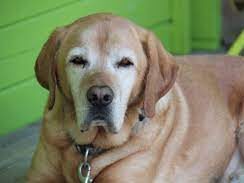When taking protein supplements for senior dogs, it is important to consult a veterinarian before making any dietary changes.
Although protein is essential for dogs at all stages of life, including adulthood.
However, each dog’s specific needs may vary based on factors such as health status, activity level, and overall well-being.
Protein powder for senior dogs.
This article provides some tips to help you choose the best protein powder for your senior dog.
Consult your veterinarian.
Before introducing any new supplement, especially for senior dogs, it is very important to consult with your veterinarian.
They can provide personalized recommendations based on your dog’s individual health status and nutritional needs.
What does a quality dog’s protein need to contain?

If your vet approves protein supplements, make sure you choose high-quality protein sources that are easily digestible.
Look for protein powders made specifically for dogs and avoid extra additives, fillers, or artificial ingredients.
Why do you need good protein?
Dogs generally need a certain amount of protein in their diet, which can vary based on age, weight, and activity level.
Senior dogs may have slightly different protein needs due to changes in metabolism, muscle mass, and other factors.
Prepare a complete diet well.
While protein is important, maintaining a balanced and complete diet is essential for your senior dog.
This includes providing the right balance of carbohydrates, fats, vitamins, and minerals.
Protein supplements should complement a well-rounded diet rather than replace it.
Check your health condition.
Some older dogs may have health conditions such as kidney problems or pancreatitis that require dietary adjustments
. These conditions can affect protein metabolism.
That’s why it’s especially important to work closely with your veterinarian to determine the right protein levels and sources.
If your vet recommends a protein supplement, gradually introduce it into your dog’s diet.
A sudden change in diet can cause digestive upset.
Observe carefully.
Keep a close eye on your senior dog’s health and well-being after introducing any dietary changes.
Look for improvements in energy levels, coat condition, and overall vitality.
Remember, every dog is unique, and what works well for one dog may not work for another.
Your veterinarian’s guidance makes the best decisions for your senior dog’s nutrition and health.

